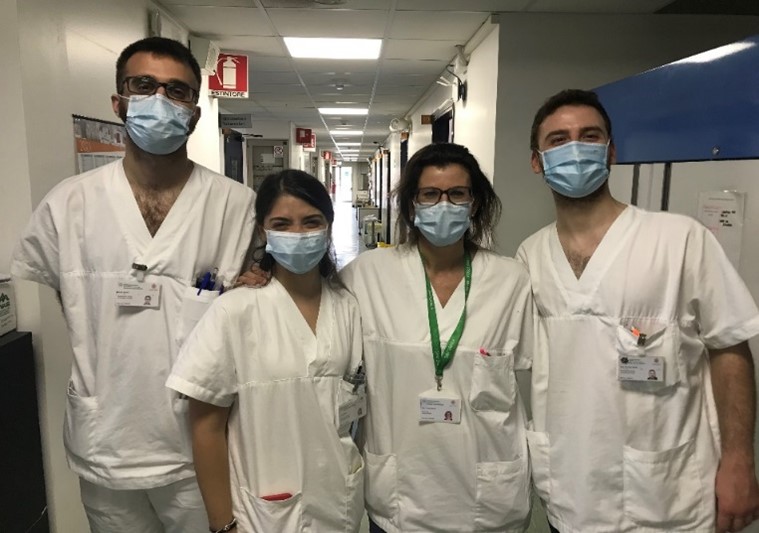Research areas:
- Development of molecular techniques for the early diagnosis of invasive fungal infections (Aspergillus spp, Fusarium spp, as well as Mucoralis, Pneumocystis, and yeasts) in critical, solid organ, hematological, and COVID-related ARDS transplant patients.
- Sequencing for the identification of rare and cryptic species, important for preparing an appropriate anti-fungal therapy.
- The study of anti-fungal drug resistance (mainly azole) using culturing and rapid, non-culturing methods (PCR) and the monitoring of their epidemiology in our territory. The emergence of resistant strains is related to the selection of resistant strains due to treatment and the use of pesticides in agriculture (in naive patients).
- The control of fungal infections in the healthcare environment with advanced techniques, such as MALDI-TOF spectrometry, Infra-Red spectroscopy, and molecular testing. These infections can occur in critical patients, so it is necessary to identify the sources of infection to prevent nosocomial spread.
Teaching activity:
The laboratory hosts specialist resident physicians enrolled in the School of Specialization in Microbiology and Virology and other specialized programs. The training covers the diagnosis of infection in bacteriology and mycology with both classical and advanced techniques. In addition, students interning for their graduation and doctoral theses are also hosted.
Instrumentation available:
- Vertical laminar flow fume hood Biohazard, class 2
- Chemical fume hood
- Optical and fluorescent microscopes
- Incubators at various temperatures (37°C, 32°C e 42°C) and CO2
- Centrifuges and microcentrifuges refrigerated and non-refrigerated
- Extraction and amplification system for nucleic acids ELITe InGenius
- Thermal cycler
- Automated systems for determining the in vitro sensibility to anti-fungal drugs (Beckman Dikinson, Biomedical Sciences)
- Mass spectrometer MALDI-TOF (Bruker), IR-Biotyper (Bruker)
- Biobank clinical isolates and ATCC reference strains.
